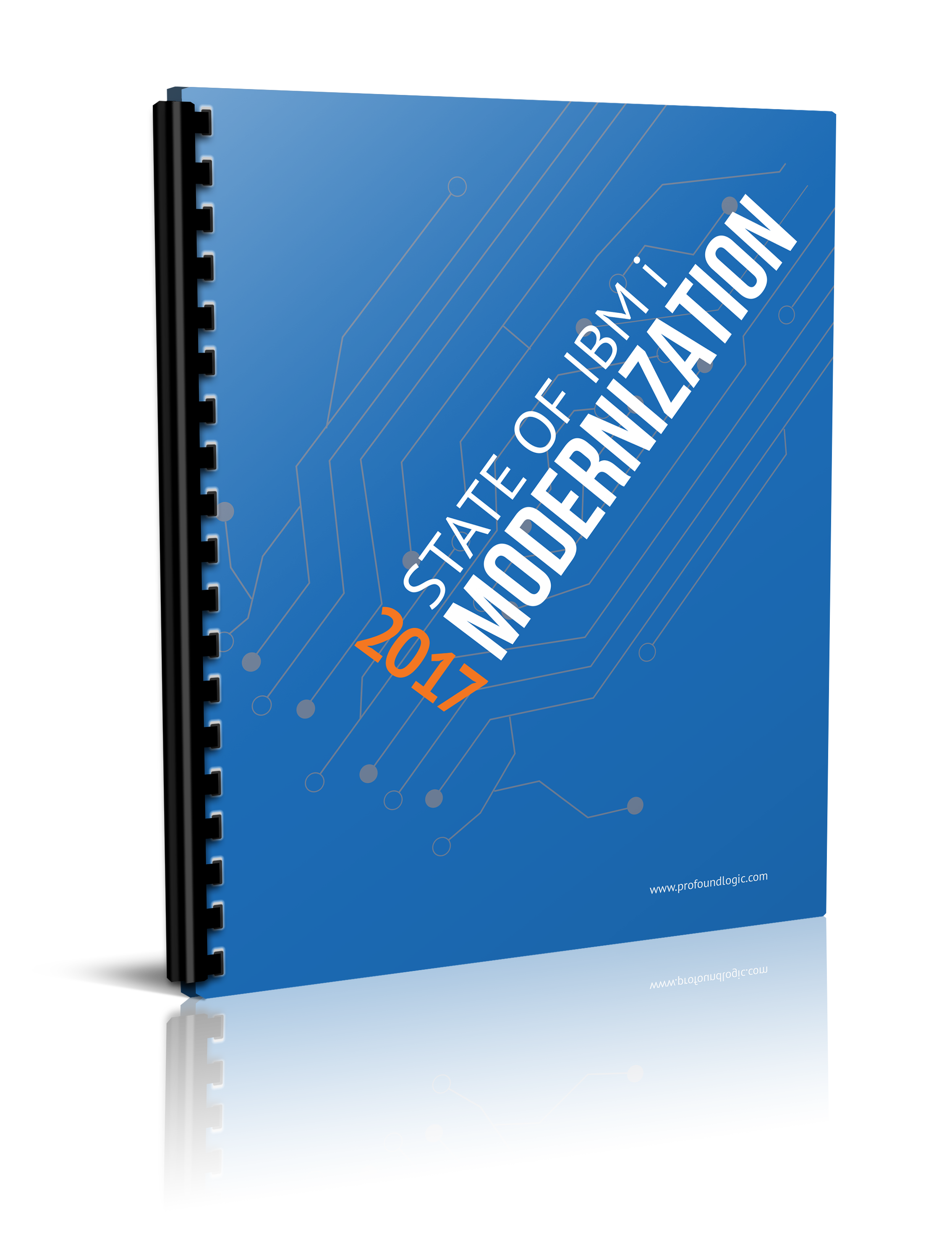
Glad to have you back for this week's IBM i Pulse! Each week we will be taking a deeper look at the latest IBM i and Profound Logic news.
From Our Experts:
- Scott Klement shows you how to Stop Limiting Yourself to 10 Character Field Names in RPG Files in is latest iLand Blog for COMMON.
- Ted Holt continues his Guru series with IT Jungle and talks about Table Value Constructors Build Tables on the Fly.
Profound Logic News:
- Profound UI Version 6 is now available! Check out what we have updated.
- Watch on-demand: Make Applications You'll Love with RPG and Node.js
Educational Resources:
- Scott Klement gives you an introduction to Profound UI's Visual Designer (video) with the new Version 6.
- Learn the Secret to Building Great Node.js Apps Unveiled with Alex Roytman.
Product News:
- Learn how to Create Custom Tool Tips with this Profound Pro Tip.
Industry News:
3 Tasks You Can Take to Improve Your IBM i's Security and Ease of Administration by Dana Boehler
Security is always on the mind of companies with an expansive platform like the IBM i system. It can frankly be intimating to try and secure and many times falls to the system administrators when they don't have a specialist to help. The goal is always to reduce administrative overhead while deciding what projects can give you value, but that is easier said than done. Here are 3 things that you can easily do to your environment to help secure your IBM i platform.
Task 1: Run the ANZDFTPWD Command - this will check the profiles on your system for passwords that are equal to the username of that profile and then outputs the list to a spooled file. This prevents unauthorized users from gaining access to your system.
Task 2: Use SQL to Query Security Information from Library QSYS2 - This will allow users with appropriate authority to create specific reports on user profiles, system values, audit journal data, group profiles, PTF information, authorization lists, and a ton more useful data.
Task 3: Implement a Role-Based Security Scheme - This is a way of restricting access to system resources using authorities that are assigned to group profiles. When a user profile is created it then becomes configured with no direct access to objects on the IBM i, instead, group profiles are given access to job functions.
These a just a few of things you can do to get started securing your IBM i. In future posts, I intend to delve into more depth, especially regarding role-based security.
The Future of Node.js: Q&A with Mark Hinkle by Richard Harris
The Node.js Foundation was established in 2015 and has focused on supporting Node.js and all its related modules with an open governance model. The last few years have seen a massive amount of changes to the technology as it becomes more of a staple for more and more companies. The Executive Director of the Node.js Foundation, Mark Hinkle, talked about the growth of the Node.js, how the foundation works with the Node community, and what he is most excited about in the future. Here are some highlights from his interview:
"We have seen Node.js go from 8 million to over 9 million instances online every month in just one year from 2016 to 2017. Our contributor numbers have grown to over 1,900 in Node.js core alone. That’s an increase of over 400 new contributors year to date as well. We have also gotten very good at consistently putting out a Long Terms Support version every fall."
"Node.js is the most popular workload on Amazon Lambda and IBM Cloud Functions and many other Function-as-a-Service or Serverless architectures. Also, we are consistently seeing more applications being built for mobile and Single Page Applications (SPAs) by pairing Node.js with popular frameworks like React and Angular."
"I'm most excited about JS Interactive this year. This is the first time we have expanded beyond the Node.js community for our annual developer conference. We are hoping to double the size of the Node.js Interactive event last year and are bringing in a variety of speakers from the JavaScript community that extend beyond just Node.js."
The Node.js Foundation will be holding their annual JS Interactive conference in Vancouver Canada on October 10-12th.




